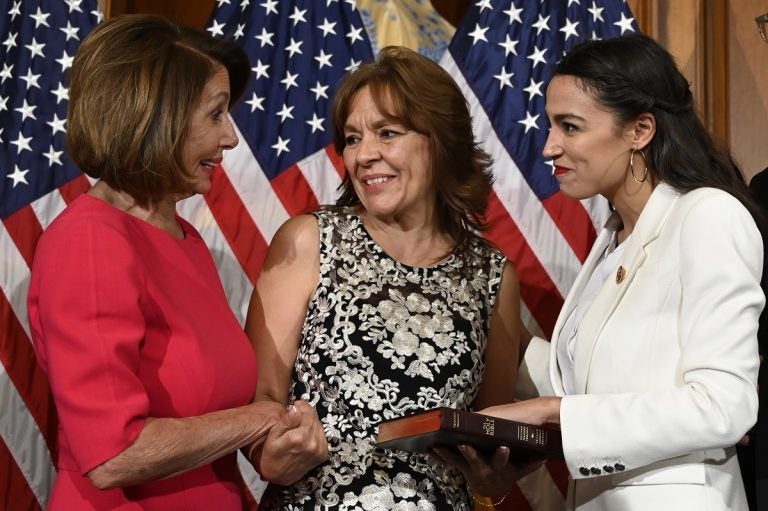The roots of and challenges to the Democratic establishment
Ryan Grim charts how “Democratic establishment” developed its political ideology in as well as those who attempted to challenge their authority over the years.
Listen 49:33
House Speaker Nancy Pelosi of Calif., left, talks with Rep. Alexandria Ocasio-Cortez, D-N.Y., right, and her mother Blanca Ocasio-Cortez, center, during a ceremonial swearing-in on Capitol Hill in Washington, Thursday, Jan. 3, 2019, during the opening session of the 116th Congress. (AP Photo/Susan Walsh)
Guest: Ryan Grim
The emergence of Alexandria Ocasio-Cortez and the recent relevance of “democratic socialism” has put a spotlight on some of the internal, ideological struggles within the Democratic Party. Part of these differences have been playing out in the debates, as the moderates and the progressives duke it out over policy disagreements as well as political maneuvering. In his new book, We’ve Got People, veteran political reporter RYAN GRIM charts the ways in which the so-called “Democratic establishment” developed its political ideology in reaction to the conservative wave of the 1980s, as well as those who attempted to challenge their authority over the years.
WHYY is your source for fact-based, in-depth journalism and information. As a nonprofit organization, we rely on financial support from readers like you. Please give today.





